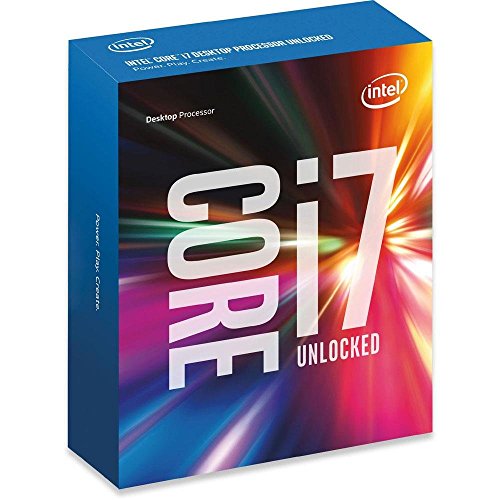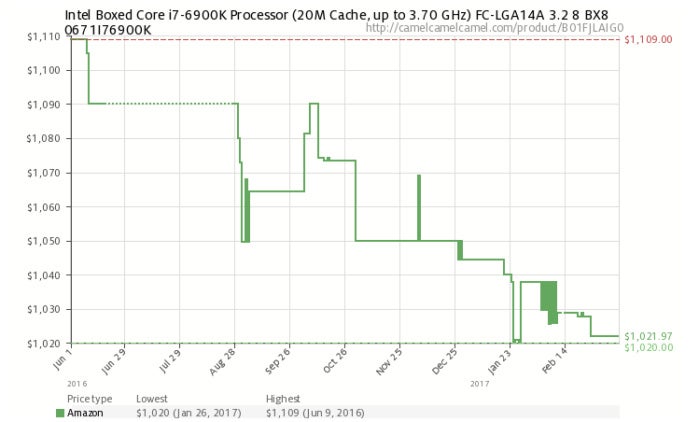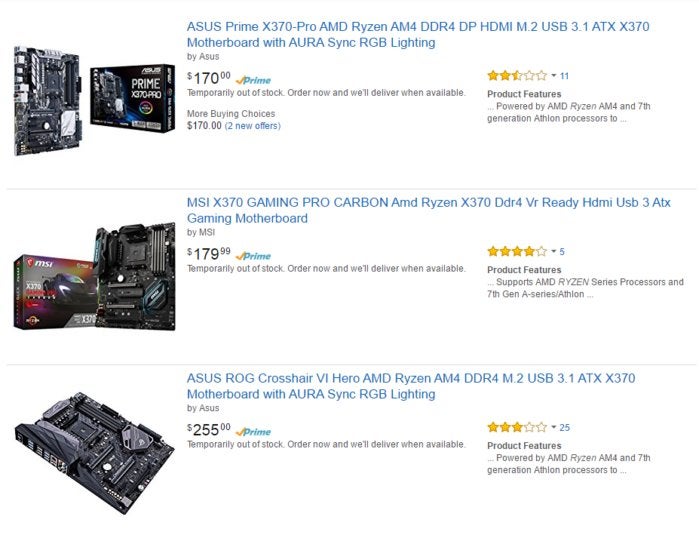Ryzen rumors: Perception vs. reality with AMD's new CPU

 Image: Thomas Ryan
Image: Thomas RyanWith the Ryzen 7 launch just two weeks old and Ryzen 5 nearly upon us, AMD’s comeback CPUs are generating as much controversy, confusion, and misinformation as they are excitement. We’re cutting through the chatter to give you the real answers about AMD’s new CPU.
Perception: Ryzen runs hot
Reality: Not true
Despite really low thermal design power (TDP) ratings, Ryzen chips have oddly been labeled as running hot. The problem seems to relate to how utilities are reading the new chips’ on-die sensors. AMD, in fact, just disclosed that certain CPUs feature offsets that make it look like they’re running hot.
“In the short term, users of the AMD Ryzen 1700X and 1800X can simply subtract 20°C to determine the true junction temperature of their processor. No arithmetic is required for the Ryzen 7 1700. Long term, we expect temperature monitoring software to better understand our tCTL offsets to report the junction temperature automatically,” the company wrote in a blog post.
Keep in mind, we’re talking about Ryzen performance under stock settings—not overclocked. Even so, if the tool were off by 20 degrees in the upward direction, it would definitely appear to be hot.
The fix is likely to come once the utilities are updated to recognize the offset of the CPU.
Belief: Intel has already slashed prices in reaction to the Ryzen launch
Answer: Not true
Soon after Ryzen had its coming-out party, several websites ran stories saying Intel slashed prices in reaction to the new rival.
Mentioned in this article
Intel Boxed Core i7-6900K Processor (20M Cache, up to 3.70 GHz) FC-LGA14A 3.2 8 BX80671I76900K
 Price When Reviewed:$1109.00Best Prices Today:$120 at Amazon
Price When Reviewed:$1109.00Best Prices Today:$120 at Amazon
The problem is the confirmation of the price cuts cited Micro Center’s retail stores. Any good cheapskate knows Micro Center has used CPUs as loss leaders for years to get foot traffic to its stores.
Some of the so-called price slashes are overblown. One claimed the Core i7-6950X had been “slashed” to $1,599. That CPU launched with a list price of $1,723 and has been available for months at $1,623.
More proof: Here’s the camelcamelcamel.com historical price (on Amazon) of an 8-core Broadwell-E Core i7-6900K, which you’d think would be under immense pricing pressure from AMD’s 8-core Ryzen chips. The price slash of the CPU goes from $1,100 to $1,021. Looking at that and historical data for other Intel CPUs, I’m seeing more paper cuts than slashes.
 PCWorld
PCWorldSorry, but that ain’t no price cut in my book.
Ryzen just launched, and we’re not privy to any backroom deals and arm-twisting that might be going on. For all we know, a big price cut is planned.
But if you were to buy a new Core i7-7700K or Core i7-6900K this week, you wouldn’t be catching a break. We even asked Intel: The company said those price-cut stories were “inaccurate,” and nothing has been announced.
 Battlefield 1
Battlefield 1Despite what you hear, Ryzen is not terrible for gaming at all.
Perception: Ryzen is terrible for gaming
Reality: Not true
If there’s just one fact from this entire column that you should remember, it’s this one: Ryzen is not terrible for gaming. Yes, even if your friend heard it from a friend who was watching a friend’s Twitch stream, I repeat: It is not terrible for gaming.
AMD’s gaming performance can at times be perplexing. In multi-threaded and single-threaded applications, it’s generally outstanding. In tested games, however, Ryzen tends to takes third place behind Intel’s Kaby Lake and Broadwell-E CPUs. This is akin to saying an Olympic 100-meter runner is “slow” for getting a bronze medal. Of course, its gaming performance at higher resolutions and high-quality visual settings is mostly imperceptible, because that usually turns into a GPU load, rather than a CPU load. In sum, Ryzen is a fine gaming CPU and not terrible at all, folks.
Perception: AMD is as good as Intel in gaming today
Reality: Partially true
We just said Ryzen isn’t terrible for gaming, but it’s also not the best. The vast majority of our own tests, along with tests conducted by other reviewers, show that when using today’s games and today’s version of Windows, Ryzen takes a backseat to Intel’s CPUs.
This can be seen at the most popular resolution of 1080p and lower, and even at higher-quality settings in some games. Ryzen will also likely falter with monitors that push high refresh rates, such as 120Hz or 144Hz. As much as some fans may not want to accept it, Ryzen isn’t as good as Core i7 in many gaming scenarios.
Ryzen will be as good as Intel, however, when you run that game at 4K Ultra HD resolution. At higher resolutions—which is where you should be playing with a beefy GPU such as a GTX 1080 or GTX 1080 Ti—the graphics card becomes the bottleneck, and you’ll notice little or no difference between a Ryzen or Core i7.
Ryzen has actually proved itself equal to or better to Intel Core i7 in some games. However, reasonable observers would agree that Intel has the lead given today’s conditions. Tomorrow there may be optimizations, but tomorrow is not today, and the frame rate today is what gamers care about.
 IDG
IDGIf you have ambitions of one day being a YouTube star and having video games made about you like PewDiePie—an 8-core chip is probably best for you.
The other possible advantage Ryzen may have over Intel’s quad-core gaming chips is in game hitching. Anecdotal reports have suggested some games on Ryzen will see fewer hitches than they’d experience with a quad-core CPU, due to the additional cores on the AMD chip.
Perception: An 8-core chip is a better gaming CPU if you want to be the next PewDiePie
Reality: True
Reasonable people will agree that Intel’s parts are faster than AMD’s chips for today’s games, but that’s for traditional gaming. The exhibitionist culture of today means you don’t play by yourself anymore—you’re probably streaming live to an audience on YouTube, Twitch, or Facebook as you try to become the next Internet sensation.
Reasonable people will agree that having more cores for real-time game streaming means having an 8-core CPU is better. That’s because most streaming software uses the CPU to encode the stream, which eats up resources. A quad-core chip will run out of resources before an eight-core chip does, leading to dropped frames and hitching.
This isn’t even a partisan divide. Sure, AMD has pushed more cores as an advantage of its Ryzen over Intel’s Kaby Lake, and Intel has used the same argument for pushing its 6- and 8-core Core i7 chips over its own quad-core chips.
There’s an argument that using GPU encoding, such as GeForce Experience’s ShadowPlay, works just as well. This is true, but most streamers are very much the definition of content creators and will use video editors daily.
In the end, if you do want to be the next YouTube or Twitch sensation, an 8-core is the better choice.
Perception: It’s Windows 10’s fault
Reality: Not true (but once a suspect, always a suspect)
As people tried to get to the bottom of why Ryzen performed so well in applications (Both multi-threaded and single-threaded) but not so well on games, the usual suspect was called in for questioning: Windows. Window’s scheduler, or the part of the OS that doles out workloads to the CPU, just wasn’t playing nicely with Ryzen, many theorized. In the end, AMD itself cleared Microsoft as a suspect, saying the scheduler is functioning correctly.
If you’re still hearing from a friend of a friend of a friend that Windows 10 doesn’t recognize the cache on the chip correctly, AMD shot down that theory in the same blog post. I reached out to Microsoft to confirm whether the company was indeed working on correcting issues with the scheduler on Ryzen, but I’ve not heard back as of this writing.
If AMD itself is saying Windows 10 isn’t at fault, that pretty much settles it. Considering that Linux kernel needed a patch to account for Ryzen’s multi-threading, how did Windows 10 skate through? It’s not like a vendor would be ordered to fall on its own sword to protect Windows 10’s reputation, right?
Perception: Reviewers who wrote negative things about Ryzen are shills for Intel
Reality: Not true (mostly)
It’s almost impossible to fact-check for shills, because many influences on reviewers are unseen and impossible to prove. What I can say is that many of the reviewers accused of being shills for Intel are also among those AMD itself cited in the coverage of the new Ryzen chip. If those reviewers were Intel-biased, why would AMD point to their coverage as proof of the success of Ryzen? Many of the reviewers of Ryzen have also continued to follow initial coverage with additional testing, in an attempt to get to the bottom of why Ryzen isn’t quite as fast as Intel in gaming.
Short of accessing the bank accounts of all supposed shills, we can chalk up the accusations to the pent-up enthusiasm of a dedicated fan base.
 PCWorld
PCWorldSearch Amazon.com for X370 and the first three results are out of stock. Motherboard vendors say the shortage should get better soon.
Perception: There’s a massive motherboard shortage
Reality: Mostly true
After an initial shortage of Ryzen CPUs, you can now actually buy the chips. The problem? You may not be able to get a motherboard to put it in.
Specifically it’s hard to find the top-end, enthusiast-focused X370 boards. Plenty of the more sedate B350 boards are available.
No need to cut the line, though: Spot-checks of Newegg and Amazon (as of this writing) showed some availability. One motherboard vendor promised that more were arriving by the boatload.
Still, we’ll rate this as mostly true, because when you have a shiny new Ryzen 1700 staring at you from your build bench, you’re not going to be a patient camper.






